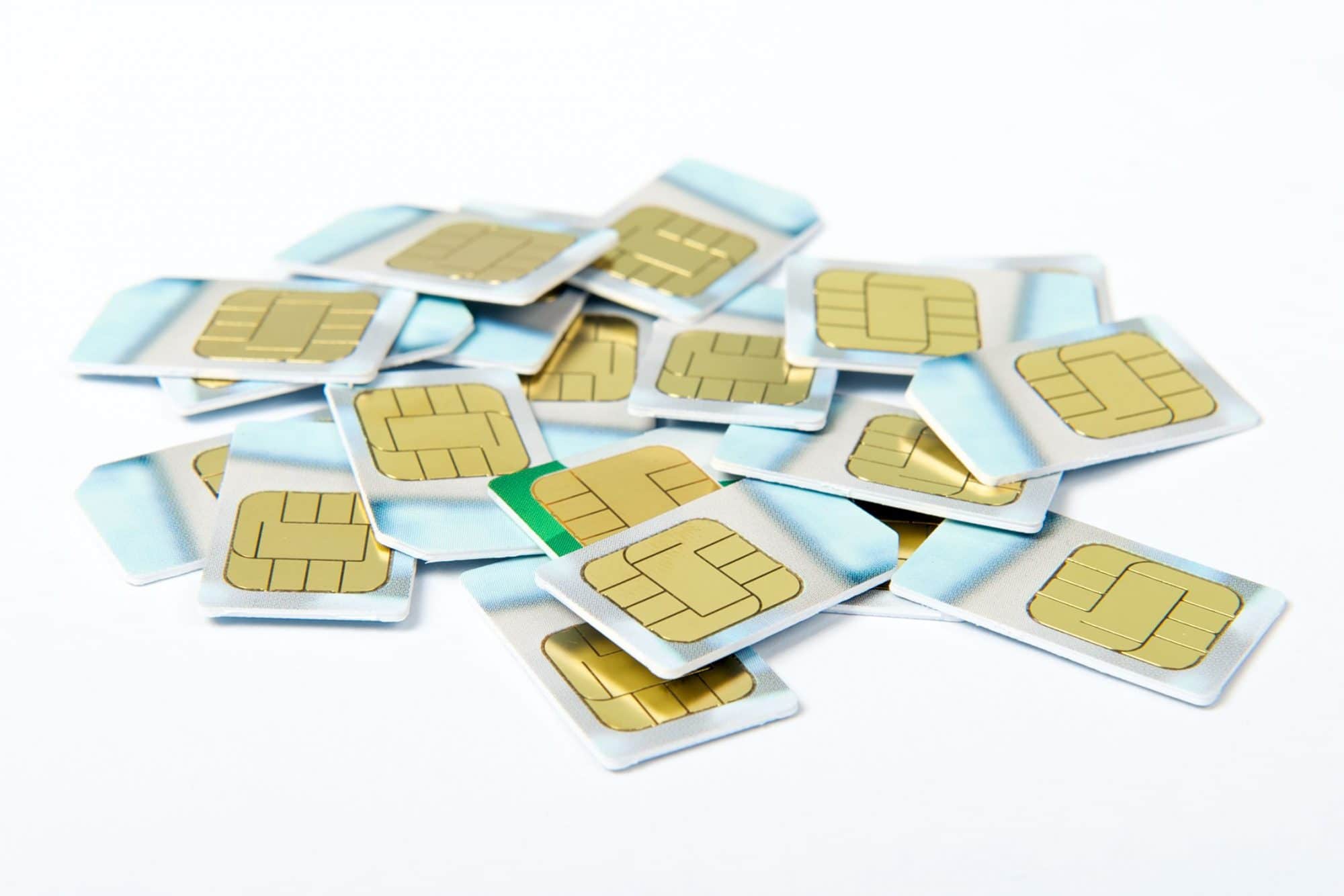SIM Information System: Unraveling the Secrets Behind Your Mobile Connection

The world of telecommunications has evolved rapidly, and at the heart of this evolution lies the SIM information system. In the not-so-distant past, SIM cards were simple devices that facilitated communication through mobile phones. However, with technological advancements, SIM information systems have become complex, playing a crucial role in ensuring the security and efficiency of modern telecommunication networks.
Definition of SIM Information System
At its core, the SIM information system is a comprehensive network of technologies and protocols designed to manage and secure subscriber information in mobile communication networks. From the early days of basic SIM cards, these systems have evolved into sophisticated structures that go beyond mere subscriber identification.
Significance in Telecommunication
The significance of SIM information systems in the realm of telecommunication cannot be overstated. These systems not only authenticate subscribers but also contribute to the overall security and seamless functioning of mobile networks.
Evolution of SIM Information Systems
Early SIM Cards
In the beginning, SIM cards were rudimentary, storing subscriber information for device authentication. However, as mobile networks expanded, so did the need for more robust information systems. Early SIM cards were the foundation upon which the current, advanced systems stand.
Technological Advancements
Technological advancements have propelled SIM information systems into the digital age. The integration of encryption techniques and the ability to store not only subscriber information but also critical data related to the device itself have transformed these systems into powerful guardians of mobile communication.
Integration with Mobile Networks
Modern SIM information systems are seamlessly integrated into mobile networks, working in tandem with various components to ensure a secure and efficient telecommunication environment. The integration has not only enhanced security measures but has also facilitated the management of subscriber data.
Components of SIM Information System
SIM Cards
The humble SIM card has come a long way. It now contains not only subscriber information but also serves as a key player in ensuring the security of mobile communications. The physical and digital aspects of modern SIM cards make them integral components of the information system.
IMEI Numbers
In addition to SIM cards, International Mobile Equipment Identity (IMEI) numbers play a vital role in the SIM information system. These unique identifiers contribute to device authentication and assist in tracking and managing mobile devices.
Encryption Techniques
Security is paramount in SIM information systems, and encryption techniques are the guardians of sensitive data. Advanced encryption ensures that subscriber information and communication remain confidential, safeguarding users against potential threats.
Importance of SIM Information Systems
Security Measures
One of the primary functions of SIM information systems is to implement robust security measures. By authenticating subscribers and encrypting communication, these systems act as barriers against unauthorized access and cyber threats.
Subscriber Authentication
Authentication is the bedrock of secure communication. SIM information systems authenticate subscribers, ensuring that only authorized individuals can access mobile networks and services.
Anti-Theft Features
Modern SIM information systems come equipped with anti-theft features, adding an extra layer of protection for users. Remote tracking, device locking, and data wiping functionalities contribute to the overall security of mobile devices.
Challenges in SIM Information Systems
Privacy Concerns
While SIM information systems enhance security, they also raise privacy concerns. The collection and storage of extensive subscriber data have led to debates regarding user privacy and data protection.
Fraudulent Activities
As technology advances, so do the tactics of cybercriminals. SIM information systems face challenges in combating fraudulent activities, including identity theft and SIM card cloning.
Technological Vulnerabilities
No system is entirely immune to technological vulnerabilities. SIM information systems must constantly evolve to address emerging threats and vulnerabilities to maintain their effectiveness.
Future Trends in SIM Information Systems
Blockchain Integration
The integration of blockchain technology holds promise for enhancing the security and transparency of SIM information systems. Blockchain can provide a decentralized and tamper-proof ledger for managing subscriber data.
Enhanced Authentication Methods
The future will likely see the development of more sophisticated authentication methods, including biometrics and multifactor authentication, further securing mobile communications.
Role in 5G Networks
As 5G networks become the new standard, SIM information systems will play a pivotal role in ensuring the security and efficiency of these high-speed networks.
Case Studies
Successful Implementations
Examining successful implementations of SIM information systems provides insights into best practices and effective strategies in the ever-evolving landscape of telecommunications.
Lessons Learned from Failures
Equally important is the analysis of failures. Learning from past mistakes helps in refining and improving SIM information systems to meet the challenges of the future.
How SIM Information Systems Impact Consumers
User Privacy
Understanding the impact on user privacy is crucial. While SIM information systems enhance security, consumers must be informed about the extent to which their data is collected and used.
Convenience in Telecommunication
On a positive note, SIM information systems contribute to the convenience of telecommunication. Swift and secure authentication processes ensure hassle-free communication for users.
Risks and Safeguards
Educating consumers about potential risks and the safeguards in place within SIM information systems empowers them to make informed choices regarding their mobile security.
Regulatory Framework
International Standards
Establishing international standards for SIM information systems ensures a unified approach, fostering collaboration and interoperability among global telecommunication networks.
Local Regulations
Local regulations play a vital role in shaping the landscape of SIM information systems. Compliance with these regulations is essential for seamless operations.
Compliance Challenges
Navigating compliance challenges poses a constant hurdle for SIM information systems. Adapting to changing regulatory landscapes requires flexibility and proactive measures.
The Role of SIM Information Systems in Cybersecurity
Preventing Cyber Attacks
Given the rising threat of cyber attacks, the role of SIM information systems in preventing unauthorized access and data breaches is paramount for overall cybersecurity.
Collaborative Efforts with Cybersecurity Agencies
Collaboration with cybersecurity agencies enhances the effectiveness of SIM information systems. Shared intelligence and coordinated efforts strengthen the defense against evolving cyber threats.
Constant Updates and Upgrades
Regular updates and upgrades are essential to stay ahead of cyber threats. Continuous improvement ensures that SIM information systems remain resilient in the face of new challenges.
Exploring Future Possibilities
AI Integration
The integration of artificial intelligence (AI) in SIM information systems can enhance predictive analysis and threat detection, making these systems more proactive and adaptive.
Biometric Authentication
Advancements in biometric authentication, such as fingerprint and facial recognition, can provide an additional layer of security to SIM information systems.
Virtual SIMs
The concept of virtual SIMs may redefine the traditional approach, allowing users to switch between networks seamlessly and revolutionizing the way SIM information systems operate.
Industry Collaboration for Improvement
Telecommunication Companies
Collaboration among telecommunication companies fosters knowledge-sharing and collective efforts to improve SIM information systems industry-wide.
Technology Providers
Innovations from technology providers play a pivotal role in advancing SIM information systems. Cutting-edge solutions contribute to the continuous improvement of security measures.
Regulatory Bodies
Active involvement of regulatory bodies ensures that SIM information systems align with legal requirements, contributing to a secure and compliant telecommunication ecosystem.
Real-world Implications for Businesses
Integrating SIM Information Systems into Corporate Security
Businesses can benefit from integrating SIM information systems into their corporate security frameworks, safeguarding sensitive communication and data.
Reducing Business Risks
By adopting robust SIM information systems, businesses can mitigate risks associated with unauthorized access, data breaches, and other cybersecurity threats.
Enhancing Communication Efficiency
Efficient communication is vital for business operations. SIM information systems contribute to enhancing communication efficiency, ensuring smooth and secure interactions.
Addressing Common Misconceptions
Understanding SIM Information System Myths
Dispelling common myths and misconceptions about SIM information systems is crucial for promoting accurate understanding and informed decision-making.
Clarifying Misinformation
Addressing misinformation ensures that users have accurate information about SIM information systems, fostering trust and confidence in these essential components of modern communication.
Conclusion
Recap of Key Points
In conclusion, the evolution of SIM owner details has transformed them into complex guardians of modern telecommunication. From security measures to future possibilities, these systems play a pivotal role in shaping the future of mobile communication.
Future Outlook for SIM Information Systems
The future looks promising, with advancements in blockchain, biometrics, and AI. SIM information systems are poised to continue their crucial role in ensuring secure, efficient, and convenient telecommunication.
Frequently Asked Questions (FAQs)
Is my personal information safe within the SIM information system?
Yes, SIM information systems are designed with robust security measures to protect personal information.
How do SIM information systems contribute to 5G networks?
SIM information systems play a crucial role in securing and managing devices in the high-speed environment of 5G networks.
Can SIM information systems prevent identity theft?
Yes, the authentication and encryption features of SIM information systems act as safeguards against identity theft.
What should I do if my mobile device is lost or stolen?
Contact your mobile service provider immediately to enable anti-theft features and secure your device.
How often should I update my SIM card information?
It is advisable to update your SIM card information regularly to ensure the latest security features are in place.

